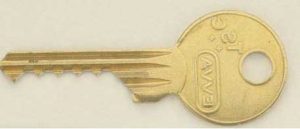 You become a tenant when you agree to pay an amount in rent for access to property for a period of time. Aa a tenant you have rights. Tenant rights and landlord-tenant law as a whole are ever-evolving. Tenant rights may be mandated by federal, state, or local laws that address not only what happens when a tenant fails to pay rent or when a landlord wants to evict a tenant for making too much noise, but also rent control and a tenant’s right to disclosure of defects and to notice in cases of foreclosure.
You become a tenant when you agree to pay an amount in rent for access to property for a period of time. Aa a tenant you have rights. Tenant rights and landlord-tenant law as a whole are ever-evolving. Tenant rights may be mandated by federal, state, or local laws that address not only what happens when a tenant fails to pay rent or when a landlord wants to evict a tenant for making too much noise, but also rent control and a tenant’s right to disclosure of defects and to notice in cases of foreclosure.
FAQs
What are My Rights as a Tenant?
As a tenant you may be intimidated when you have a disagreement with your landlord and hesitate to assert your rights. You may feel like the underdog in a David-versus-Goliath situation, but federal law and laws in most states provide many protections for tenants. Even if you are behind in your rent and the landlord wants you out, you may have valid defenses to an action for eviction and other recourse than to pay what the landlord says you have to pay or move out.
Among your rights as a tenant are the right to:
- A habitable, clean, sanitary, safe, hazard and defect-free premises
- Not be discriminated against on the basis of a protected class, which may include race, religion, age, sex, family status, ethnicity, and other classes
- When applying for housing, being shown rental units, in the selection and availability of rental units or in the services or features offered
- Complain to the landlord or government office about the landlord’s unlawful conduct without being retaliated against with eviction, shutdown of utilities, rent increase, or other action intended to stifle your lawful exercise of your rights
Can My Landlord Keep My Entire Security Deposit?
Under California law, a landlord must return the renter’s security deposit, with an itemized statement of deductions, within 21 days after the renter has surrendered the rental property to the landlord (that is, returned the keys and vacated the property).
After the tenants moves out, the landlord can apply the deposit to:
- Unpaid rent owed
- Cost to clean the unit
- Cost to repair or replace items damaged by the tenant beyond normal wear and tear
- Cost to store the tenant’s belongings
Many states set limits on how many months in rent or security deposit the landlord can demand. The landlord may, however, require deposit up to the mandated limits.
In general, once the tenant vacates the property, the landlord has 21 to 30 days to send the tenant a refund of the deposit minus any amount lawfully applied to back rent, damages to the premises, or costs for cleaning and storage.
The landlord must:
- Provide an itemized list describing all deductions
- Send the refund to the tenant’s last known address or to an address the tenant provides before or shortly after moving out. It is the tenant’s responsibility to provide a valid address. If the landlord’s attempts to send the refund to the address of record fail, he or she may lawfully be allowed to keep the refund after a certain period of time.
What is Normal Wear and Tear?
The standard most state laws apply to determining if a landlord can lawfully deduct the cost of repairing damage to a rental unit is whether the damage was beyond the degree of damage commonly accrued through everyday use.
The standard is subjective, however, so often a landlord and tenant may disagree on what damages should be deducted from the security deposit. If state law requires that the landlord provide an itemized list of deductions, the tenant can refer to this list for specifications about the damages.
A landlord’s failure to comply with the law can result in the landlord having to pay the tenant triple damages, penalties, interest and attorney fees.
Laws governing rental deposits also dictate how the funds will be held, usually requiring that the deposits be placed in a bank account separate from the landlord’s accounts. Some states require that deposits earn interest and the landlord pay the interest to the tenant at scheduled times and a specified minimum rate.
In general, once the tenant vacates the property, the landlord has 21 to 30 days to send the tenant a refund of the deposits minus any amount lawfully applied to back rent, damages to the premises, or costs for cleaning and storage.
A landlord’s failure to comply with the law can result in the landlord having to pay the tenant triple damages, penalties, interest and attorney fees.
(See Tenant Rights and FAQs Part II for more information on rental and security deposits.)
Know your rights as a tenant in California. The attorneys at the Brod Law Firm will defend your right to a clean and safe apartment free from harmful chemicals, vermin, and other pests. We will fight to get your security deposit refunded to you. Call us today to discuss your landlord-tenant issues. The lawyers at the Brod Law Firm can help you. Call 800-427-7020 today for a free consultation. We have offices in San Francisco, Oakland, and Santa Rosa (Sonoma).
 San Francisco Injury Lawyer Blog
San Francisco Injury Lawyer Blog

